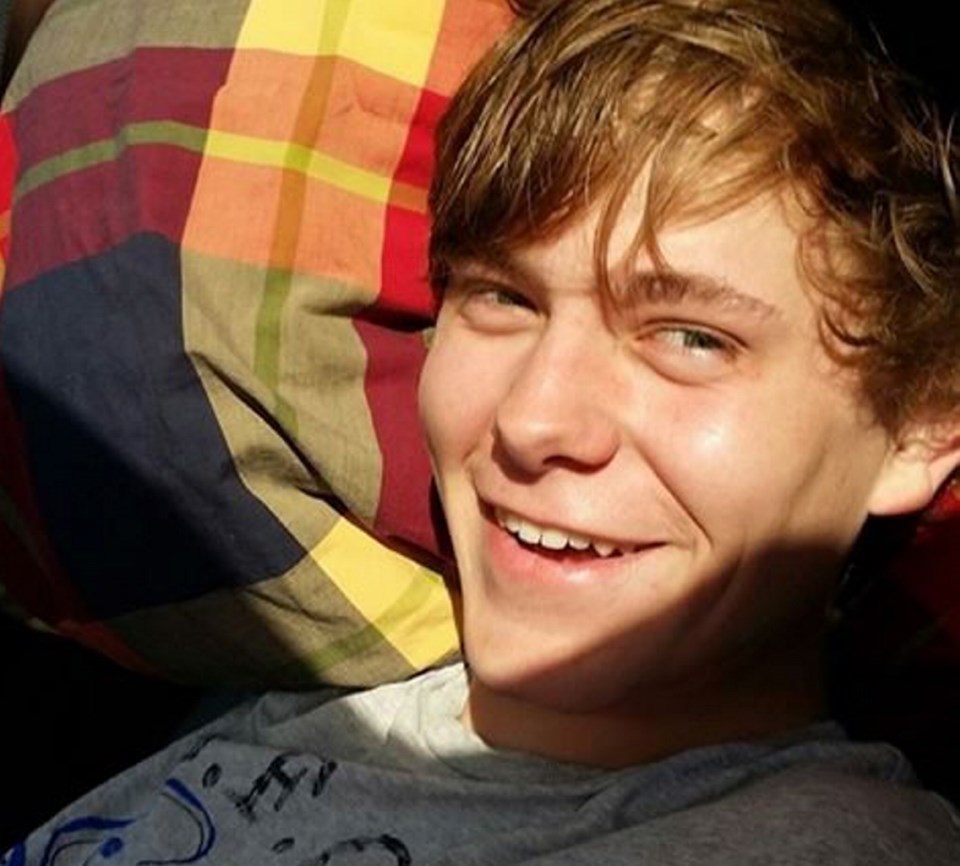A weeklong coroner’s inquest into the death of Rhett Mutch, who was shot by Victoria police in 2014, concluded Friday with recommendations to improve access to emergency mental-health services and communication among social service agencies, and provide better training for police.
A seven-person jury made the recommendations after hearing evidence from police officers, witnesses, family and social agency workers, along with suggestions from the presiding coroner.
Mutch, 20, was killed at his Dallas Road home on the morning of Nov. 1, 2014. His mother had called police after he broke a window to get into his basement bedroom. In a 911 call played for the jury, Mutch could be heard making suicidal comments while holding a knife to his abdomen.
Within minutes of police arriving at the home and escorting his mother out, Mutch had been shot in the neck and died. Officers said he ran at them with a knife. An officer fired his gun after a beanbag shot failed to stop him moving forward.
The inquest was told that Mutch had been in and out of government care, and had behavioural issues, conflicts with his mother and troubles at school.
Testimony focused on the events that led to his death, including communications failures by emergency dispatch and police, and conflicting accounts of what happened in the moments before he died. Body cameras and better verbal skills were discussed as tools that might have helped.
“It can be much more effective to have a few meaningful recommendations with a focus on addressing systems and standards than a number of recommendations addressing unique circumstances,” presiding coroner Donita Kuzma told the jury.
The jury recommended the Ministry of Health fund Victoria’s Integrated Mobile Crisis Response Team to provide round-the-clock services. The unit includes police, and health, mental-health and outreach workers. Because of limited resources, they are only available from 1 to 11 p.m., seven days a week. The unit would not have been available the day Mutch died.
The jury asked the Independent Investigations Office of B.C., a civilian office that investigates police-involved shootings and injuries, and the B.C. Association of Police Chiefs to facilitate timely debriefing for police after major incidents. The inquest heard there was no debriefing after Mutch was shot because of the 14-month IIO investigation and potential legal issues.
The Ministry of Public Safety and Solicitor General was asked to ensure that mandatory crisis intervention and de-escalation training be refreshed with new and relevant scenarios every two years.
Police and Island Health were directed to require that after a certain number of crisis calls from one family, an intervention and safety plan be developed.
The jury also recommended improved information sharing among police record-keeping systems, the Ministry of Health and the Ministry of Children and Family Development.
Situations where there have been multiple calls to police should be flagged for officers.
Police had contact with the Mutch family at least 68 times over 10 years, the inquest heard.
Dr. Trudy Adam, a child and youth psychiatry expert, recommended better communication and planning for crisis intervention for high-risk youth and young adults with complex needs.
The Ministry of Children and Family Development was asked to improve the support that it provides children as they age and become young adults.
Mutch left a support program about four months before he died because he had learning problems at school and wanted a summer break.
The jury also recommended that children maintain the same support workers as they age.
Legal Aid was asked to provide a fee category for legal representation at inquests for family of the deceased person. Marney Mutch, Rhett Mutch’s mother, represented herself at the inquest and questioned every witness about her son’s death, at her own cost.
Inquest recommendations are not binding, but inquest counsel John M. Orr said they have led to many major policy changes in the province. He noted concrete dividers on the Malahat near Whippletree Junction were the result of a juror’s suggestion following a serious crash. Other measures that came out of inquests include having cameras in police holding cells, and implementing spot checks of vehicle brakes at hilltops.
The jury was asked to classify Mutch’s death and determined it was a suicide. The cause of his death was a gunshot wound to the neck from a shot fired by police.



